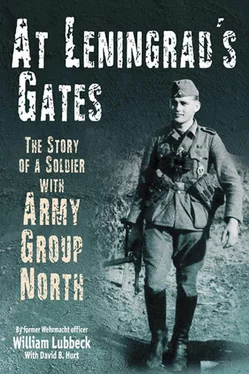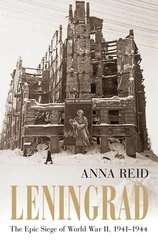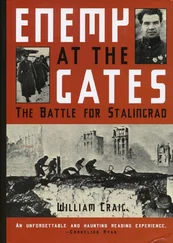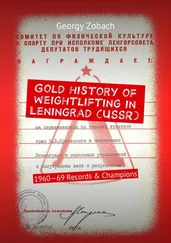Long before the Nazis came to power, Germany’s military had internalized a culture of respect for order and authority that was rooted in every social institution: the family, the schools, churches, the law, and everything else. When training for the army, our instructors drilled discipline and obedience into us. We obeyed the commands of our officers without question, regardless of the casualties we might suffer.
The German people at home, in turn, had long given their respect and patriotic support to the military, much like the esteem that Americans today feel for the U.S. armed services. During the war, the speeches and rallies, propaganda posters and films, collection drives for precious metals to make weapons and munitions, the hardships, and even the Allied bombing reinforced the sense of unity between the German population at home and the German troops fighting abroad. This was the social fabric that made Germany so strong during the Second World War.
I grew up in a farm family.
Although my maternal grandfather, Gottlieb Matthies, originally trained as a schoolmaster and taught in a one-room schoolhouse, his life changed when he met my grandmother, Luise Schulz. Luise’s parents owned a farm of about 200 to 250 acres that had belonged to her family since the 1700s. When my grandfather and grandmother married in 1889, he stopped teaching to run the farm because Luise’s father was ready to retire and there was no male heir in her family to inherit the property.
My mother, Margarete Matthies, was born to them in 1896. She, with her older brother and younger sister, grew up on this farm in the small village of Püggen, typical of the small towns and villages that dot Europe’s landscape. Located among the rolling hills of the Altmark agricultural region, midway between Hanover and Berlin in north central Germany, the village’s roughly 200 residents lived between a pinewood forest to the north and meadows to the south.
As in other German farm villages, the homes and other buildings in Püggen were clustered in a central location surrounded by the farmland. The closest train stop, stores, and policeman were located in larger neighboring villages, the nearest being a couple of miles away.
Born in 1892, my father grew up as the second son of the Lübbecke family with one older brother and seven sisters. They lived on a large farm of about a thousand acres dating from the 1700s. It was located in the village of Hagen, which is now part of the city of Lüneburg. Because the law of primogeniture at that time dictated that the oldest son received all the family’s property when the father passed away, my father eventually left Hagen to train as a manager on several different large farms in northern Germany.
During the Great War of 1914 to 1918, later called the First World War, my father was drafted into a cavalry unit, as was customary for members of the landed gentry. He joined the 2. Hannoversche Dragoner Regiment Nr. 16, based in Lüneburg. Meanwhile, as part of the national effort to support the army at the front, my mother helped ready Christmas packages to send to troops. Upon receipt of a parcel prepared by my mother, my father wrote a letter back, initiating a correspondence that would eventually lead to their marriage.
In late 1917, my father suffered a foot wound that led to his discharge from the military. Though the injury forced him to wear a special shoe for the rest of his life, he soon recovered enough to return to work, taking up a position managing a large farm of a couple of thousand acres in Dromfeld, located near Göttingen in central Germany. My father also recommended that his employer hire my mother to run the household, which of course gave him an opportunity to get to know her better as well.
While my parents’ situation was somewhat unique, it was then a common practice for young German females who grew up on smaller farms to leave home to work at a larger farm for a couple of years. Beyond improving the skills necessary to run a household of their own, it also gave young women a chance to meet eligible males outside of their community.
Arriving to work at the farm in Dromfeld, my mother met my father for the first time in person. While their relationship was a natural partnership, they also fell in love. Within about six months, they became engaged.
Following their marriage in October 1919, they came to live on the Schulz/Matthies farm in Püggen. Because my mother’s elder brother had died from an illness while serving as a soldier in Russia during the Great War, she was in line to inherit the farm as the oldest living heir. With my father’s experience as a professional farm manager, my grandfather immediately allowed him to begin running the farm.
Because my father was raised on a sizeable farm and then managed even larger ones, he found it somewhat difficult to adjust to running the much smaller farm in Püggen. Although it was common for small farm owners in Germany to perform the hands-on labor alongside the hired help, he was not accustomed to doing this type of manual work, despite being a physically large man.
Adapting to this new role was a challenge for him, but he was a good organizer and had the freedom to run the farm as he saw fit without interference. Usually, he and my grandfather agreed on decisions relating to the farm and maintained a good relationship. In his dealings with the neighbors, my father sought to help out whenever he could, though he could be a difficult man to get along with and preferred to operate independently whenever possible.
Because my birth on June 17, 1920 came just eight and a half months after my parents married, my father’s family kidded him lightheartedly about my early arrival. As their first child, I received the same name as my father, Wilhelm Lübbecke. Following my birth, my parents had a son, Joachim, and a daughter, Elisabeth, but they both died at a young age from illness.
My twin brothers Otto and Hans were born five years after me, followed by my brother Hermann in 1928. My sister Marlene was born in 1930, almost exactly ten years after me. With the birth of my sister Christa in 1934, my parents did not plan to have any further children.
It was therefore a surprise when my mother became pregnant with my youngest sister, Margarete, in 1937. I felt embarrassed and angry. I was seventeen years old and already dating. Even after my parents made me her godfather, it was hard for me to accept that my mother could still be having children.
In our family, my six siblings and I were closer to our mother, who was very loving and affectionate with all of us. Unlike my father, she possessed a deep faith in God and set aside a daily devotional time for Bible-reading and prayer. Her outgoing personality made her the friend of everyone in the village where we grew up. In every task she pursued, my mother was determined and diligent to ensure that it was properly done. For every task she accomplished, she was humble and uncomplaining about her labors. While she was a nurturing parent and played the largest role in shaping our values, both of our parents taught us to stand on our own feet and take care of ourselves.
Fond memories of my family’s life in Püggen fill my mind, but life on a farm was not easy. Chores frequently occupied my time after school. During busy periods on the farm, my days off school often revolved around work, broken by a series of meals from six in the morning until eight in the evening.
Lacking trucks, tractors, or indeed any form of automotive vehicle, we did everything with manpower and our eight horses. During normal operations, we had two or three hired employees to assist us in the fields and in taking care of our livestock. In the fall, my father would hire more help or obtain assistance from our neighbors in order to provide the five to ten additional workers needed to harvest our crops of wheat, barley, rye, potatoes, and sugar beets.
Читать дальше












